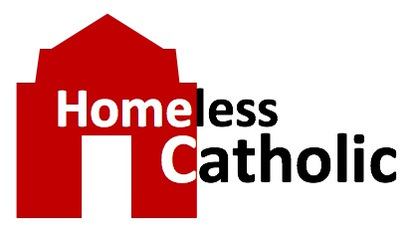I need a Savior!
“Sin is any thought, word, action or omission contrary to the law of God.” So said the Catechism I was raised on. But that definition has largely lost its significance for me; and has gradually been replaced with a different definition that better informs my spiritual life.
“Sin is anything which is detrimental to my relationship with God or to the maturation of that relationship. In this context, I find the words “save” and “savior” provide a new and more meaningful understanding for me.
Reflection - Savior
http://www.usccb.org/bible/readings/121018.cfm
Isaiah 35:1-10
Luke 5:17-26
Were you astonished by Isaiah’s description?
- All that business about parched lands exulting. . . ?
- And the steppe rejoicing and blooming . . . ?
- About the glory and splendor of God being seen . . . ?
- Did you catch his breathtaking affirmations about what will happen to the blind and the deaf and the lame and the mute . . . ?
- Did you notice the remarkable transformation of the desert . . . ?
- Or the possibility of peaceful passage through a land full of jackals and lions . . . ?
- And . . . . Did you notice what all this signifies . . . ?
Here is your God,
he comes to save you.
He comes to save you!
To Save . . . Save . . . Savior . . . Salvation . . .
Saved from what?
- Sin?
- Damnation?
- Suffering?
Saved for what?
- Heaven?
- Eternal happiness?
- A boring life?
Our response—at least mine— has, at times, been confusing. I’ve heard these words since I was a child and their meanings, while somewhat implied by their context, have escaped clear understanding for me. Perhaps that was because of the definition offered for the meaning of sin: “Sin is any thought, word, action or omission contrary to the law of God.” So said the Catechism I was raised on. But that definition has largely lost its significance for me; and has gradually been replaced with a different definition that better informs my spiritual life. “Sin is anything which is detrimental to my relationship with God or to the maturation of that relationship. In this context, I find the words “save” and “savior” provide a new and more meaningful understanding for me. This definition directs me to ask: what in my life is detrimental to my relationship with God or to the maturation of that relationship.
The search for an answer is not a difficult one. In fact, it is far too simple to find categories of examples, each filled with their own set of personalized particulars. The commandments provide but one category and we’ve probably been well instructed in its particulars. But others we’ve not been taught to think about. Consider just a few other categories. What about those things from my past which still bring to mind shame or regret? What about the sorrows and pains and disappointments of my youth? What about the struggles and sorrows in my human relationships that lead to difficulties or estrangement? What about those interactions which make it difficult to trust or to be open or to avoid responding to criticism with defensive anger? What about the padlock I have on some of my beliefs? What about my anger that can be aroused by relatively unimportant matters? What about my indifference to and participation in culturally acceptable behaviors, indifference because the short term effects are not evident and the long term effects can, presumably, be avoided . . . or, at least, ignored.
This list can go on, seemingly forever. And if our hearts have not become hardened by our apparent inability to see them as issues that are detrimental to our relationship with God or to the maturation of that relationship then we will join the Psalmist in exclaiming:
To you all flesh will come
with its burden of sin.
Too heavy for us, our offenses,
but you wipe them away. (Psalm 65)
The canticle of Zechariah, the father of John the Baptist, is recited everyday as part of the morning prayer of the church. Zechariah recognized that his son would be the herald of the promised messiah and that the appearance of the messiah was immanent. For that reason, he raised his voice in praise.
He [God] has raised up for us a mighty savior,
born of the house of his servant David.
Through his holy prophets he promised of old
that he would save us from our enemies,
from the hands of all who hate us.
He promised to show mercy to our fathers
and to remember his holy covenant.
This was the oath he swore to our father Abraham:
to set us free from the hands of our enemies,
free to worship him without fear,
holy and righteous in his sight
all the days of our life. (Luke 1:69-75)
These few verses, more than any others in the Scriptures, led me to reconsider the meaning of sin I grew up with and to reflect on my understanding of savior.
Do I need a savior? You bet I do!
Not so much because of laws that I have broken, but because, as Zechariah says I need a “mighty savior,” a savior who can and will set me free from my enemies.
My enemies are not those who would rob me or kill me. My enemies are all those people, places, things, circumstances, and events which bring fear into my life, or appropriate my time by demanding attention, shame or regret for the past, or distract me from praising God by necessitating the correction of my present errors. I need a savior to free me from whatever prevents me from worshiping God without fear.
He has come!
Let’s go out to meet him!

